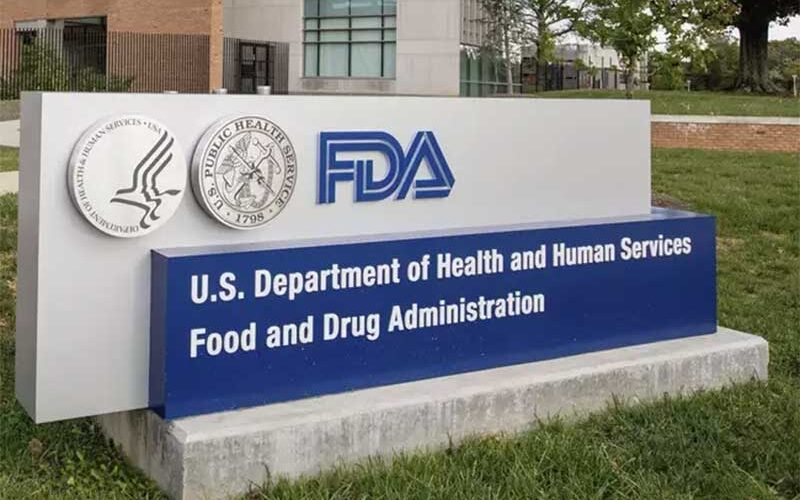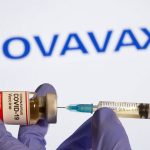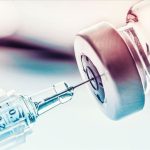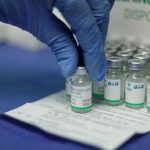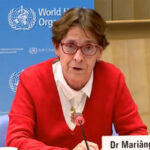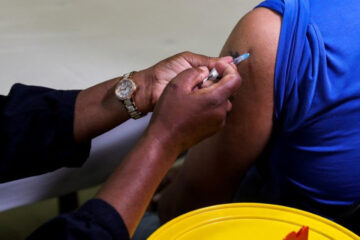DAN LEVINE and MARISA TAYLOR
A physician who heads the influential U.S. Food and Drug Administration vaccine advisory committee recused herself from the panel’s review of COVID-19 vaccines because of her role overseeing a clinical trial for Moderna Inc’s candidate, her spokeswoman told Reuters.
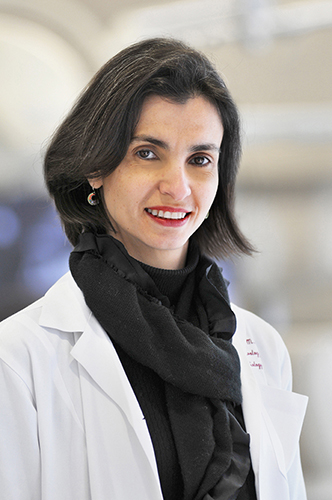
Hana El Sahly, associate professor of virology and microbiology at Baylor College of Medicine in Houston, last year became chairwoman of the FDA’s Vaccines and Related Biological Products Advisory Committee – the panel of outside experts that will make recommendations on whether coronavirus vaccines should be approved.
In July, however, El Sahly was named one of three lead investigators for Moderna’s late-stage COVID-19 vaccine trial, creating a potential conflict of interest.
Moderna has said it could have enough data to show whether its vaccine is safe and effective as soon as November. That timeline would make it one of the first drugmakers to seek U.S. approval.
Baylor spokeswoman Dipali Pathak confirmed El Sahly’s recusal. The FDA said it generally makes committee rosters public no later than two business days before any meetings, but did not say who would lead the vaccine committee in El Sahly’s absence. El Sahly declined to comment, and Moderna did not respond to questions.
Expert advisory panels often play a pivotal role ahead of FDA approval decisions. The advice of these outside experts has taken on heightened importance for COVID-19 vaccines, given concerns the FDA is under pressure from the Trump administration to rush out a vaccine before the Nov. 3 presidential election.
A meeting on COVID-19 vaccine candidates is scheduled for October 22. It is highly unlikely any drugmaker will have enough data to seek authorization by then, although Pfizer Inc has said it may know if its vaccine works by next month.
FDA officials have promised the committee will conduct a “transparent discussion” about clinical trial data on the vaccine candidates before any potential authorization.
The FDA is not bound to follow the advisory group’s recommendations. However, should the panel advise against approval – especially over safety concerns – it would make it harder for the agency to justify moving forward.
Sheldon Toubman, a Connecticut-based attorney who serves as consumer advocate on the FDA vaccine advisory committee, called El Sahly “very knowledgeable,” and said she has done an excellent job in leading discussions on other vaccines.
“I am sure the replacement chair, if chosen from among the existing member-experts on our committee, will also be fully qualified,” Toubman said.
The vaccine advisory committee consists of 15 voting members. The agency can also appoint temporary members with specific expertise in the topic under discussion.
The U.S. government has invested nearly $11 billion to help develop and manufacture more than half a dozen coronavirus vaccine candidates seen as essential to helping end a pandemic that has claimed nearly a million lives worldwide.
Under protocols for the Moderna trial being co-led by El Sahly, an independent data and safety monitoring board will take its first look at the data after 53 trial participants become infected, which the company estimates will happen in November.
If the vast majority of those who contracted COVID-19 were in the group that got a placebo, Moderna said it will seek emergency use authorization (EUA) for its vaccine.
As of last week, Moderna said it had enrolled more than 25,000 participants out of a planned 30,000 in its late-stage study.
Earlier this year, the FDA set safety and efficacy guidelines for granting an EUA to COVID-19 vaccines. To further dispel political pressure concerns, the agency is expected to soon announce more stringent standards, calling for trial participants to be monitored for at least two months after receiving a final shot, according to a report in the Washington Post on Tuesday.
The Health and Human Services secretary could overrule any FDA decision. – Thomson Reuters Foundation.

